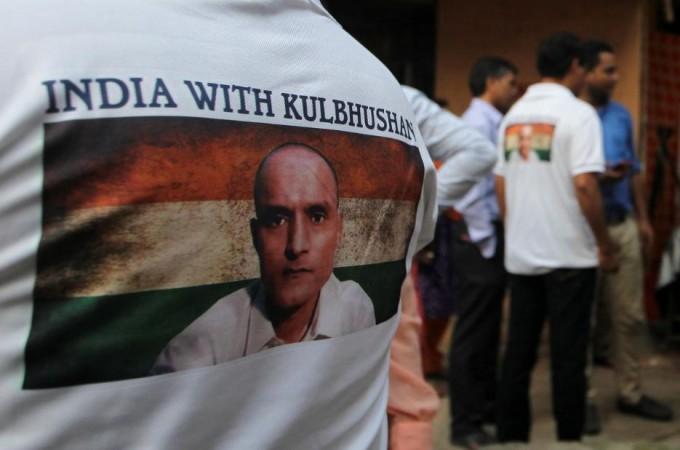
India registered victory at the International Court of Justice (ICJ) on Wednesday when it won the ruling that Pakistan must review the death sentence of former Indian navy commander Kulbhushan Jadhav. But it's not clear what course the tangled case will take from now on. The Pakistan government has claimed a win for itself, highlighting the fact that the ICJ refrained from ordering the release of Jadhav, who was convicted of espionage by the Pakistan military court in 2017.
The ICJ verdict
The panel comprising 16 judges agreed with India's argument that Pakistan had violated the Vienna Convention by denying consular access to Jadhav and ordered a stay of the execution. The verdict also asks Pakistan to conduct a re-trial.
President of the Court, Abdulqawi Ahmed Yusuf, said: "Pakistan deprived India of the right to communicate with and have access to Mr Kulbhushan Sudhir Jadhav, to visit him in detention and to arrange for his legal representation." He also added that Pakistan informed India about Jadhav's arrest after a three-week delay.
Pakistan had earlier argued that since Jadhav was accused of spying, consular access was not given as diplomatic assistance is not given to spies and terrorists. By ordering an "effective review" the court refused to accept India' plea to annul Jadhav's death sentence and order his release and safe passage to India.
Howver, judges said that Islamabad must adhere to "all necessary measures including changing their laws to ensure a proper review of Jadhav's case."
Pakistan claims victory
While Indians including Prime Minister Narendra Modi welcomed the verdict, it is unclear what will be the outcome of a retrial in the case, considering the poor state of India-Pakistan relations after the Pulwama attack in February.
We welcome today’s verdict in the @CIJ_ICJ. Truth and justice have prevailed. Congratulations to the ICJ for a verdict based on extensive study of facts. I am sure Kulbhushan Jadhav will get justice.
— Narendra Modi (@narendramodi) July 17, 2019
Our Government will always work for the safety and welfare of every Indian.
The Attorney-General of Pakistan (A.G.), Anwar Mansoor Khan, said in a statement outside the court in the Hague that the case was a "clear win for Pakistan" as the verdict did not deliver Jadhav's acquittal and his release that India sought.
Khan also said that it is up to Pakistan's court of law to decide how to proceed with the UN court's order to review Jadhav's case. He said it will be the country's court "in accordance with the provisions granted in the Vienna convention" that will decide whether Indian diplomats would get access to Jadhav.
Can India approach ICJ again?
The senior advocate representing India at the ICJ, Harish Salve, also raised concerns of possible unfair trial by Pakistan. He added that India can approach the ICJ again if suspicions arise. "If the ICJ verdict is disobeyed, we can take measures including by ways including sanctions. I'm sure Pakistan won't go that way. At least I hope so... If the trial by Pakistan isn't fair, we can go back to ICJ," he said.
In an interesting turn of events, the Chinese judge on the ICJ panel also supported the Indian claim. The Pakistani judge on the ICJ was the lone member who opposed the majority verdict.
Kulbhushan Jadhav, 49, is a former Indian Navy officer, who was arrested by Pakistan in March 2016 for allegedly working with Indian intelligence operators in Balochistan. He was sentenced to death a year later by the Pakistan military court. India approached ICJ after diplomatic dialogue between the two countries failed. His execution was restrained by the ICJ till the adjudication of the case.

















